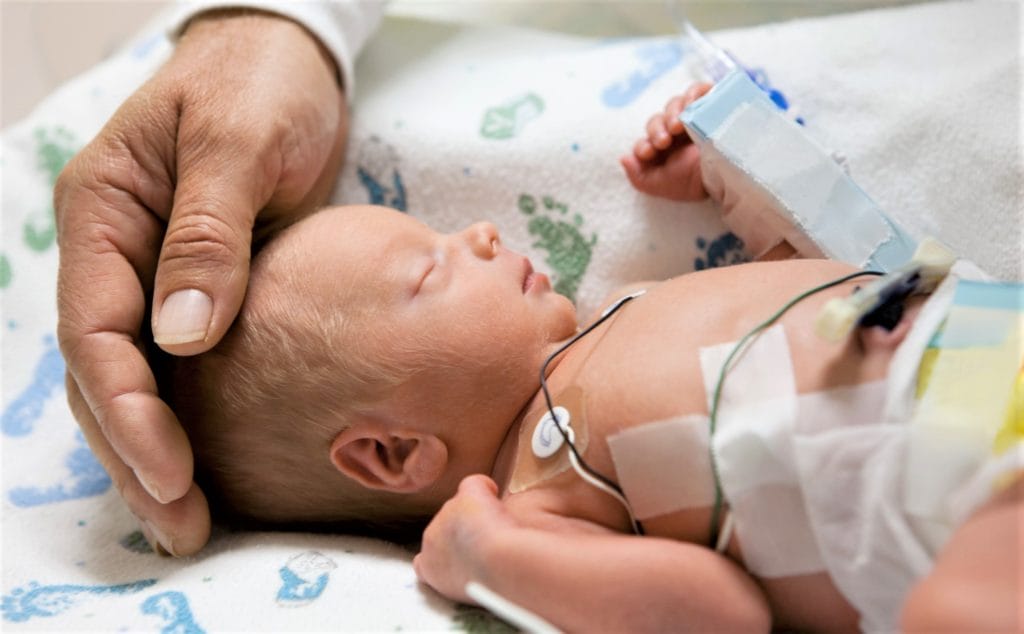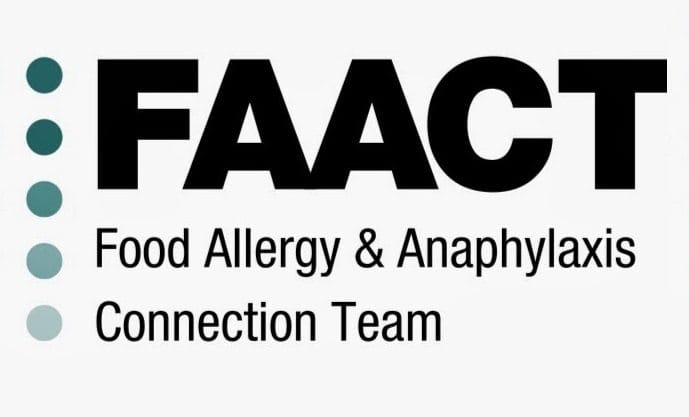
The contents of a baby’s first poop may help predict a child’s likelihood of developing allergies later on, a new study finds.
While there is already strong evidence that the first few months of a child’s life are critical to the development of a healthy immune system, researchers say the findings provide new evidence that the in utero environment also matters.
In the study published in Cell Reports Medicine, researchers from the University of British Columbia analyzed the metabolites, or molecules, in the meconium of 100 newborns. Formed during the second trimester, meconium is a baby’s first stool and is passed within a day or so of birth.
“Meconium is a window on pre-birth, a snapshot of the molecules a fetus is interacting with before it’s born,” says study senior co-author Dr. Brett Finlay, a professor of microbiology and immunology.
At age 1, the children were given skin prick tests for a variety of common food and environmental allergens. The tests showed the infants whose meconium contained more types of metabolites were less likely to develop allergic sensitization at one year old. The opposite was also true: Newborns with the least “rich” metabolite content were more likely to become sensitized.
Now the question is: can that knowledge be applied to allergy prevention?
Prospects for Early Intervention
As soon as a baby is born, the infant’s gut is colonized by bacteria, which form tiny, complex ecosystems known as the microbiota. Lots of diversity in the microbes of the microbiota has been linked to healthy immune system function, and potentially a lower asthma and allergy risk. In contrast, deficiencies in microbiota diversity are associated with a higher risk of developing asthma and allergies.

Earlier studies have suggested vaginal births and breastfeeding can help in establishing a diverse microbiome, and provide some allergy protection. However, Cesarian sections and antibiotic use in early life are linked to a less diverse microbiome and associated with an increased risk of allergies and asthma.
A pregnant woman’s diet, particularly one that includes plenty of fruits and vegetables, may also support a healthy microbiome in the mom, and potentially the baby’s, says Dr. Charisse Petersen, PhD, the lead study author and an early life microbiome research associate at UBC.
“There is this window in early life where the immune system is trying to understand what harmful or benign signals are, and the microbiota is really important to this,” she explains. The new study shows that “this early life window would include prenatal factors as well.”
When combined with a machine-learning algorithm, the meconium analysis accurately identified newborns who later became sensitized 76 percent of the time. “What’s in the meconium is having a long-lasting effect,” Petersen says.
Still, there are no immediate plans to develop a stool test to predict which infants are at risk of future allergies, Finlay says.
Researchers did not find specific metabolites that were important in predicting allergic sensitization risk, but rather their overall amount and variety. It’s also not known if there are ways to boost the levels through diet or supplements.
“We’re trying to understand what’s happening and what we can do about it,” Finlay says. “Let’s pretend tomorrow that we had a test showing your kid is going to be more allergic. We are still struggling with what to do about that.”
What Makes Meconium Poop Special
Dark, sticky and odorless, meconium contains skin and gut cells in the amniotic fluid that the fetus ingests through its mouth, as well as fats, proteins and other types of molecules excreted by the fetus in the womb.
After birth, the meconium also serves up an early food source for those first microbes. When researchers analyzed the stool of the babies at three months old, they found that “rich” meconium was associated with more bacterial diversity, particularly in bacterial groups that have been shown to be key players in the microbiome.
In previous research, Finlay and his colleagues analyzed stool samples from babies and young children to look for connections with asthma risk. They found that three-month-olds whose stool samples had low levels of four specific types of bacteria – Faecalibacterium, Lachnospira, Veillonella and Rothia – were more likely to develop asthma later on.
It’s believed that a diverse microbiome, and potentially certain types of bacteria, may help a baby’s immune system learn to tolerate substances found in the environment and food.
“Our goal is to understand how the microbiota and the immune system are being shaped, so we can identify at-risk kids as early as possible, and help parents and clinicians make decisions to support the microbiota and the immune system,” says Petersen.
In the meconium study, allergic sensitization at age one did not mean the children had symptoms of an actual allergy, Petersen notes, “however, a substantial number of sensitized children go on to develop an allergic disorder.”
The babies in the study were participating in the Canadian Healthy Infant Longitudinal Development (CHILD) Cohort study, which launched in 2008 to follow 3,500 children from before birth, in the hopes of learning more about the causes of allergy and asthma.
“What we have learned is that you need a healthy, diverse microbiome in the gut to allow the immune system to develop normally and not to be pushed toward an allergic-type immune system,” Finlay says.
Related Reading:
The Microbiome: Why Good Gut Bacteria is the Big Hope for Allergies
FARE Retreat: Experts Explore Food Allergy Treatment, Testing
LEAP Study Follow-up: Peanut Allergy Protection Endures





